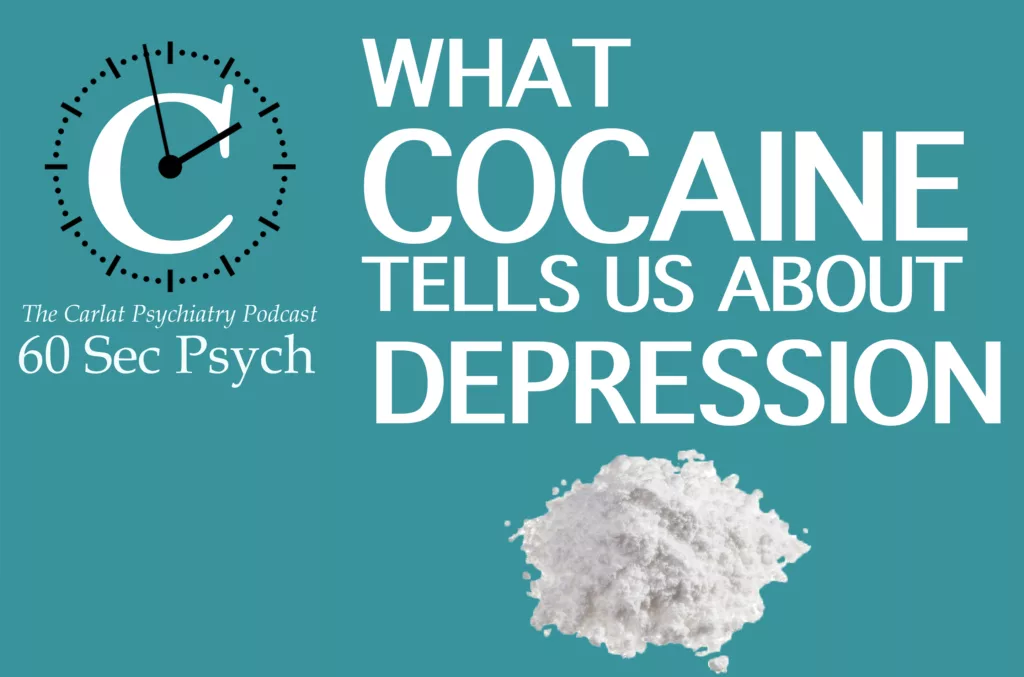Depressed patients who've used cocaine in the past might be more likely to develop bipolar disorder. A review of de Azevedo Cardoso T, Jansen K, Mondin TC, et al. Lifetime cocaine use is a potential predictor for conversion from major depressive disorder to bipolar disorder: a prospective study. Psychiatry Clin Neurosci. 2020;10.1111/pcn.13012. [Link]
Date Published: 5/13/20
Transcript:
What cocaine tells us about depression
Taiane Cardoso and colleagues followed 585 patients who appeared to have unipolar depression on the MINI structured interview. When they followed them up later ─ after an average of 3 years ─ 12% had converted to bipolar. The risk over conversion to bipolar was 3 and a half times higher in those with a lifetime history of cocaine use.
Although they were careful to ensure that these new bipolar patients had manias or hypomanias during a time of sobriety, they admit that cocaine can cause persistent changes in the brain that may mimic mania even during abstinence. The results are in line with prior studies, which have found that ─ even after rigorous testing ─ every year 1 in 25 people with depression convert to bipolar – the same rate they came up with – and that substance abuse increases that risk. In a large epidemiologic study, Jules Angst’s group found that the comorbidity between depression and substance use disorders was entirely explained by mixed features ─ whether those mixed features occurred as part of full bipolar or a bipolar spectrum disorder like the DSM5 depression with mixed features.
When people with bipolar disorder have a history of substance abuse, they are more likely to present with mixed states, and more likely respond to anticonvulsants or atypical antipsychotics than lithium.
Got feedback? Take the podcast survey.


_-The-Breakthrough-Antipsychotic-That-Could-Change-Everything.webp?t=1729528747)



